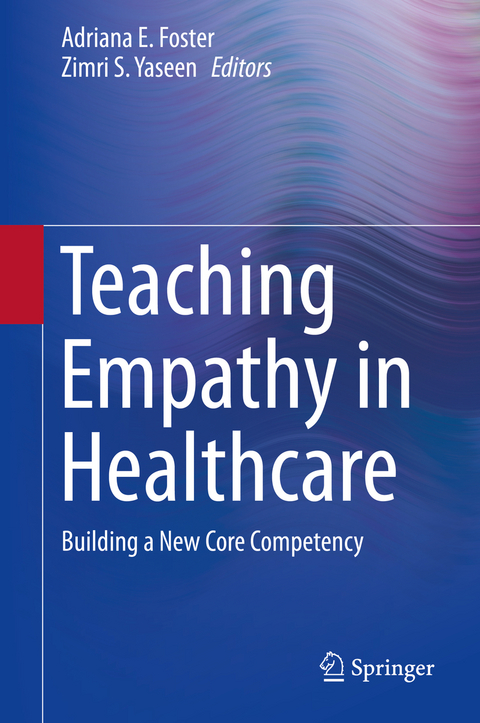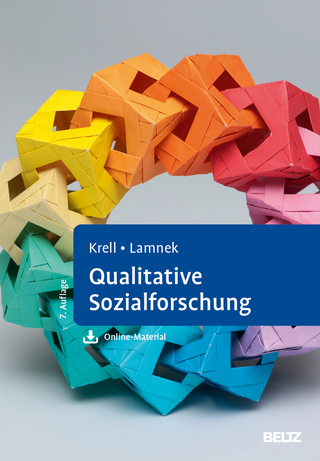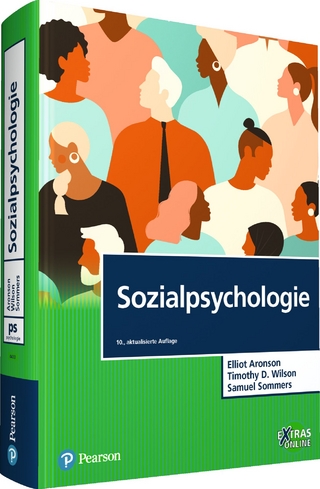
Teaching Empathy in Healthcare
Springer International Publishing (Verlag)
978-3-030-29875-3 (ISBN)
Perspectives among the interdisciplinary chapters include:
- Neurobiology of empathy
- Measuring empathy in healthcare
- Teaching clinicians about affect
- Teaching cultural humility: Understanding the core of others by reflecting on ours
- Empathy and implicit bias: Can empathy training improve equity?
Teaching Empathy in Healthcare: Building a New Core Competency takes an innovative and comprehensive approach towards a developed understanding of empathy in the clinical context. This evidence-based book is set to become a classic text on the topic ofempathy in healthcare settings, and will appeal to a broad readership of clinicians, educators, and researchers in clinical medicine, neuroscience, behavioral health, and the social sciences, leaders in educational and professional organizations, and anyone interested in the healthcare services they utilize.
Adriana Foster, MD is a practicing psychiatrist, educator and researcher. Foster's clinical experience includes inpatient, outpatient and emergency psychiatry settings. Foster has been actively teaching clinical medicine and psychiatric curriculum for the past 17 years. Foster led a Veterans Affairs clinical program and was a psychiatry clerkship director for a large medical school. Currently, Dr Foster is the Vice-Chair for Clinical and Research programs in the Department of Psychiatry and Behavioral Health at Herbert Wertheim College of Medicine, Florida International University, in Miami, Florida. Foster's educational research focuses on simulation in medical education and exploring the utility of virtual patients in teaching empathy in medical interview. Foster co-led a group of educators at the Association of Directors of Medical Student Education in Psychiatry (ADMSEP) who created a free online collection of peer-reviewed mental health educational tools. Foster has long collaborated with Virtual Experiences Research Group at University of Florida's Computer Information Science and Engineering. Foster published numerous peer-reviewed papers and educational tools, which are available for widespread use on platforms like ADMSEP's website and AAMC's MedEdPORTAL. Zimri Yaseen, MD is a practicing psychiatrist, educator and researcher. His clinical experience includes inpatient, emergency, and outpatient psychiatry. He has been actively teaching clinical psychiatry, psychotherapy, and the integration of psychodynamic approaches with psychopharmacology for the past 6 years. He is assistant director at the Family Center for Bipolar Disorder, and an active collaborator and psychotherapy supervisor with the Brief Relational Therapy research project at Mount Sinai Beth Israel. Dr. Yaseen's clinical research experience includes that of co-investigator on foundation-sponsored studies on suicide and adult attachment. Dr. Yaseen has published numerous peer-reviewed papers on these topics.
Part I: What is Empathy and how can it be evaluated?: What is empathy?.- Can empathy be taught? Neurobiology of empathy.- Is caring enough? Measuring empathy in healthcare.- The physiological nature of caring: understanding non-verbal behavior.- Part II: Approaches to Empathy Education: Teaching clinicians about affect.- Teaching emotional self-awareness and what to do with it in patient encounters.- The empathy seminar: deconstructing the components of compassion.- Teaching cultural humility: understanding the core of others by reflecting on ours.- Can virtual humans teach empathy?.- Developing Empathy Through Narrative Medicine.- Part III: Empathy Applied: Thwarting stigma and dehumanization through empathy.- Coaching nurses to care: Empathetic communication in challenging situations.- The lawyer on your side: the power of the inter-professional team in preventing moral distress and empathy erosion.- Burnoutand Empathy.- Empathy and Implicit Bias: Can Empathy Training Improve Equity?.- Getting on the same page: introducing alliance rupture as a path to mutual empathy and change in psychotherapy.- Teaching advanced communication skills to trainees caring for the critically injured.
| Erscheinungsdatum | 30.11.2019 |
|---|---|
| Zusatzinfo | XV, 307 p. 17 illus., 13 illus. in color. |
| Verlagsort | Cham |
| Sprache | englisch |
| Maße | 155 x 235 mm |
| Gewicht | 643 g |
| Themenwelt | Geisteswissenschaften ► Psychologie ► Sozialpsychologie |
| Medizin / Pharmazie ► Medizinische Fachgebiete ► Psychiatrie / Psychotherapie | |
| Schlagworte | Compassion • cultural humanity • dehumanization • Empathy • facial affective behavior • medical education • Mirror Neurons • non-verbal behavior • Patient-Clinician Communication • self-awareness • Stigma • therapeutic alliance • virtual humans • working alliance |
| ISBN-10 | 3-030-29875-2 / 3030298752 |
| ISBN-13 | 978-3-030-29875-3 / 9783030298753 |
| Zustand | Neuware |
| Haben Sie eine Frage zum Produkt? |
aus dem Bereich


